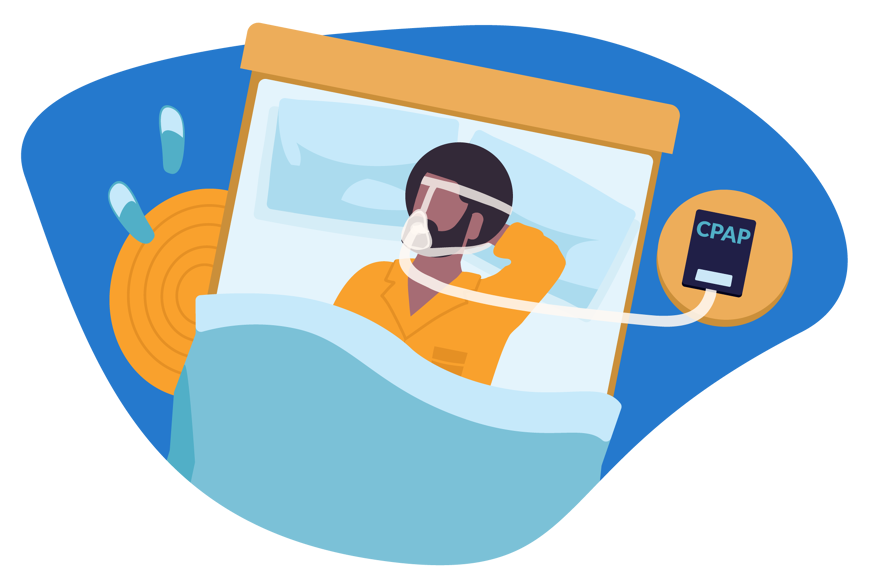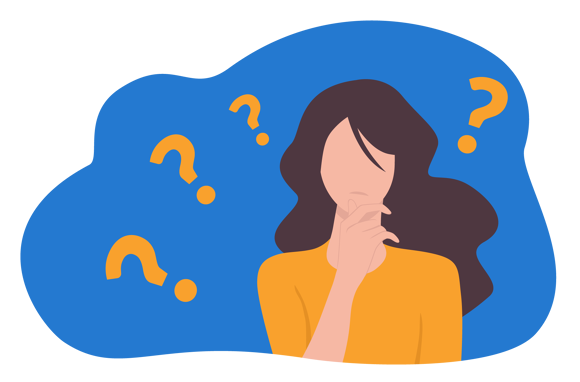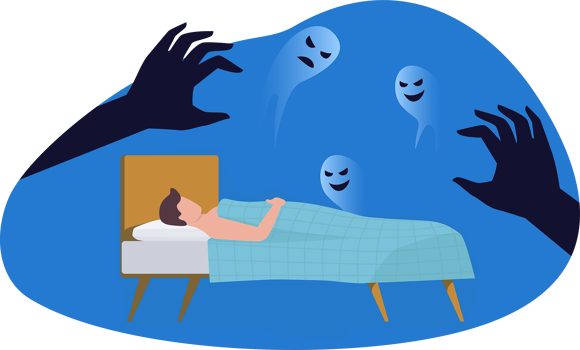Reasons you may be feeling dizzy when you wake up in the morning
There are several reasons you may be feeling dizzy after waking up in the morning.
Let’s look at some of these in more detail.
Orthostatic hypotension
Orthostatic hypotension [1] - also known as postural hypotension - is a sudden drop in blood pressure when getting up from a lying down position. 🛏️
This usually happens when the body struggles to adjust the blood flow, leading to sudden dizziness and sometimes a spinning sensation or nausea upon waking.
Although more common in older adults, it can affect anyone - especially after a long night’s rest.
Various factors other than age can also contribute to orthostatic hypotension, including certain medical conditions like diabetes, dehydration, specific medications, and disorders of the autonomic nervous system.
Pregnant women may also experience orthostatic hypotension.
Other symptoms associated with this include fatigue, light-headedness, blurred vision, and a rapid heartbeat.
Benign paroxysmal positional vertigo (BPPV)
Benign paroxysmal positional vertigo [2] (BPPV) is a common condition characterised by brief, intense episodes of dizziness triggered by changes in head position - such as you’re likely to experience when getting up in the morning!
This type of dizziness tends to occur after head trauma or a fall.
BPPV is usually caused by small crystals, known as otoliths, shifting within the semicircular canals of the inner ear, disrupting the vestibular system responsible for balance.
Other symptoms may include spinning, dizziness, nausea, and balance issues.
Ménière’s disease
Waking up feeling dizzy could also be due to Ménière's disease [3], a chronic inner ear disorder marked by recurring bouts of dizziness, tinnitus (ringing in the ears), and occasional hearing loss.

When Ménière’s disease flares up, dizzy spells can strike suddenly, even during sleep, causing a spinning sensation or loss of balance.
These episodes can last from minutes to hours and may be accompanied by nausea, vomiting, and extreme fatigue.
Ménière’s disease is related to fluid pressure imbalances in the inner ear but is not linked to blood pressure.
Inner ear vestibular issues
Morning dizziness can also indicate a condition called vestibular neuritis, which involves inflammation of the vestibular nerve in the inner ear.
Vestibular neuritis [4] can cause severe dizziness, balance problems, and a spinning sensation, and is often triggered by a viral infection, such as an inner ear or upper respiratory infection.
Common symptoms include intense dizziness lasting days to weeks, nausea, vomiting, and nystagmus (involuntary eye movements).
Dizziness is often most noticeable upon waking or with sudden head movements.
Dehydration
Another key factor to consider is dehydration.
When the body is low on fluids, blood pressure can drop, affecting the oxygen supply to the brain.
After several hours without drinking, morning dehydration can contribute to feelings of dizziness.
A simple remedy is to drink a glass of water upon waking, which can help restore hydration and reduce symptoms.
Sleep apnoea
Obstructive sleep apnoea (OSA) can sometimes cause morning dizziness due to interruptions in breathing during sleep, which lowers oxygen levels in the body.

Lack of sleep
A lack of sleep is one of the most common causes of morning dizziness.
When you get less than seven hours of sleep a night, your sleep cycle can become disrupted, affecting your balance and overall well-being.
Poor sleep posture
Bad sleep posture can also lead to dizziness in the morning.
If you sleep on your stomach or use a pillow that's too flat or too thick, it can strain your muscles and joints, causing tension and neck pain.
That's why we love adjustable pillows, where you can customise the pillow to suit you best.
Here are some top adjustable pillow recommendations:
Symptoms associated with morning dizziness
Morning dizziness rarely comes alone.
In addition to feeling dizzy upon waking, you may also experience a range of other symptoms, such as:
- Nausea: Dizziness is often accompanied by a sensation of nausea.
- Fatigue: Extreme tiredness can follow after struggling with morning dizziness.
- Lightheadedness: A sense of near fainting may occur, especially when making sudden movements or standing up too quickly.
Feeling dizzy when you stand up is usually linked to fatigue or even nausea.

While these symptoms can be unsettling, they are generally temporary and tend to disappear within a few minutes.
What can you do to combat morning dizziness?
There are a few things you could do to beat morning dizziness.
- Get up slowly: Take your time getting out of bed and sit on the edge of your bed for a few seconds before standing fully. This gives your blood circulation time to adjust, reducing the chance of dizziness.
- Drink water upon waking: Dehydration can make dizziness worse. Drink a large glass of water as soon as you wake up to rehydrate after hours without fluids. And don’t forget to stay hydrated throughout the day!
- Sleep with your head slightly elevated: If your dizziness is related to sinus congestion or acid reflux, try sleeping with extra pillows to keep your head elevated. This can help reduce vestibular issues when waking up.
- Improve your sleep routine: If sleep deprivation is the cause of your dizziness, you may need to work on your sleep hygiene. Stick to a regular sleep schedule and avoid caffeine and electronic devices just before bedtime.
If you suffer from paroxysmal vertigo, consult an osteopath or physiotherapist. This condition, caused by otoliths, may require specific treatments. 🩺
When should you see a doctor?
While occasional morning dizziness is usually nothing to worry about, it’s important to consult a doctor if:
- The dizziness persists or occurs frequently
- You experience other concerning symptoms alongside the dizziness
- Your dizziness is accompanied by chest pain, a rapid heartbeat, or severe headaches
Your healthcare professional can help identify the underlying cause of your morning dizziness and recommend appropriate treatments.

These may include physiotherapy, adjustments to your medication, or further diagnostic tests.
Understanding the potential causes and taking preventive steps can help reduce morning dizziness, allowing you to start your day with greater stability and confidence.
Concluding on morning dizziness
In conclusion, waking up feeling dizzy can be unsettling, but understanding the potential causes can help you address the issue effectively.
From dehydration and poor sleep habits to more complex conditions like orthostatic hypotension or vestibular problems, various factors could be contributing to morning dizziness.
By adopting simple lifestyle changes, such as staying hydrated and rising slowly, you may be able to reduce symptoms.
However, if dizziness persists or is accompanied by more serious symptoms, it’s important to consult a doctor to rule out any underlying health conditions.


















Alternatively, message us directly via the Contact Us page.